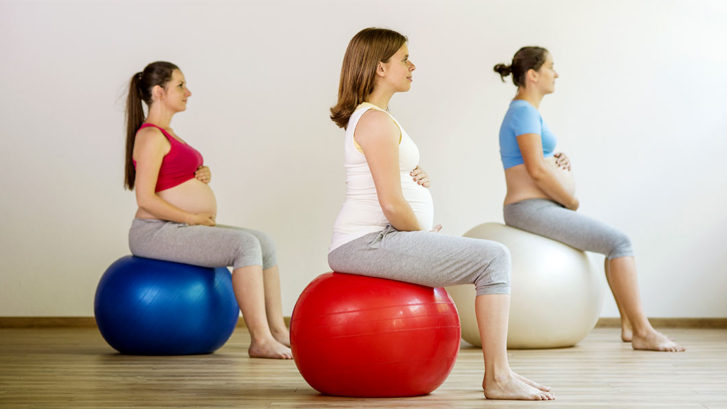Exercise Necessary During Pregnancy
For years, pregnant women were told to avoid exercise because of perceived danger to the fetus. But this month, the American Congress of Obstetricians and Gynecologists (ACOG) released a new report in the Journal of the American Medical Association (JAMA) that has attributed those recommendations, along with the simultaneous recommendation for women increase calorie intake during their pregnancies, to the rising worldwide epidemic of obesity.
“Elevated maternal weight is associated with a higher birth weight of offspring and contributes to the intergenerational transmission of obesity,” the report said. In addition, by not exercising, pregnant women miss out on a host of benefits.
In the past, physical activity was thought to increase the risk of miscarriage, low birth weight, and/or early delivery. A JAMA editorial based on the ACOG report now recognizes the importance of exercise for pregnant women, and recommends 20-30 minutes of moderately intensive exercise most days of the week, combining aerobic and strength-training exercise.
The editorial emphasized that not only is physical exercise not considered harmful during pregnancy, but is actually beneficial, as it is to the rest of the population. It increases cardio and respiratory fitness, longevity, and emotional well being. In addition, it decreases the risk for gestational diabetes, preeclampsia, lower-back pain, constipation, and urinary incontinence, as well as lowering the need for C-sections. Finally, it helps in losing baby weight after the baby is born.
So what type of exercise does ACOG recommend for pregnant women? In general, moderate exercise such as brisk walking, gardening, jogging, swimming, dancing, golf, and stationary cycling. It cautions against such intensive exercise as long-distance running, scuba diving, skydiving, boxing or other contact sports that may cause the woman to be hit in the abdomen, and heavy weightlifting. Yoga practitioners are also routinely cautioned against doing such inversion-type poses as head- and shoulder stands, and “hot” yoga or “hot” Pilates may cause you to become overheated.
Despite the new bias toward exercise during pregnancy, however, ACOG still recommends against anything more strenuous than walking for certain categories of pregnant women. These would include those with heart or lung disease, pregnancy-induced high blood pressure or preeclampsia, those with severe anemia, cervical insufficiency, bleeding or ruptured membranes, or placenta previa after 26 weeks of pregnancy.
Your concierge physicians at MD 2.0 welcome the new recommendations and remind our pregnant patients to always check with us before beginning any new exercise routine.

